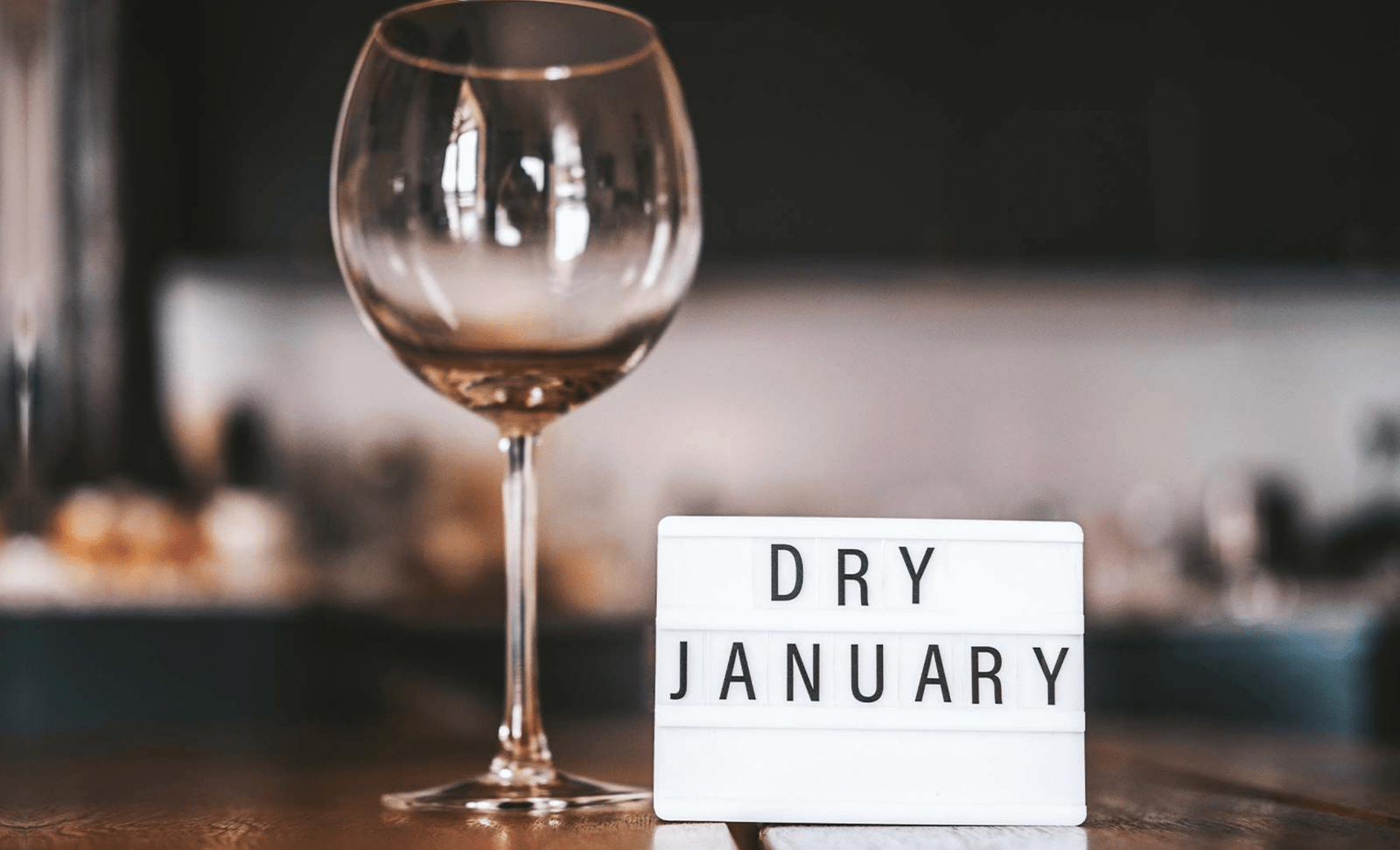People are increasingly choosing Dry January which means going without alcohol during the month of January. It allows individuals to pause after Christmas and not burden their bodies with rich foods and treats anymore. A lot of people decide to take on Dry January to support their health and well-being. Yet, deciding not to drink alcohol at all for a whole month can be a bit disruptive for certain individuals.
Here, we will take a closer look at Dry January and share the concept of “Little Dry January” or “Dry(ish) January” so you have a simpler way to stay away from alcohol. With this approach, people limit alcohol and still experience the positive effects of Dry January.
Understanding the Essence of Dry January
Defining Traditional Dry January
Traditionally, going without alcohol during all of January is how Dry January is understood. People choose this endeavor to benefit their health, change their drinking and look forward to a healthier new year.
Introducing Dry(ish) January
For some, it is still hard to decide on permanent abstinence. For those reasons, some choose to limit their consumption during “Little Dry January” or “Dry(ish) January.” It is an easier way for individuals to reduce their drinking than having to stop completely. Its core involves finding the middle ground and balancing things.
Physical Health Benefits of Dry January
Reducing the Load on Your Live
The liver takes care of breaking down alcohol and drinking too much can damage it. Simply drinking less alcohol can markedly help the liver recover. During Dry January, your liver may improve a lot. It can heal and work as expected again. Your liver will be very happy with the break you decide to give it.
Improving Sleep Quality
If you drink, you may not be able to sleep well which leads to being sleepy the next day. When you reduce the amount of alcohol, you sleep better which means you wake up more energized. A significant positive from Dry January is better sleep. Your body detoxifying from alcohol should bring back more regular sleep habits. It gets easier to drift off, stay asleep and wake up well-rested.
Enhancing Skin Health
Drinking alcohol can cause dehydration which makes your skin dry and dull. Decreasing alcohol can make the skin look more hydrated and radiant. You may observe your skin looks better after participating in Dry January. An increase in hydration allows your skin to get back to its radiant look. Blemishes might fade away and the skin texture might improve.
Improved mental health can come from taking part in Dry January.
Working to Lessen People’s Anxiety and Depression
Drinking increases the strains that anxiety and depression can have on someone. Less-frequent drinking might help you have fewer symptoms which can enhance your mental health. Dry January helps people in many ways, going beyond the effects on their bodies. A lot of people say that their emotional stability is higher and their anxiety is lower while participating in Dry January. When alcohol doesn’t heavily affect your nerves, you may find handling difficulties is less stressful and easier to stay cheerful.
Helping cognitive functions
Alcohol abuse may result in mental changes. Taking in less alcohol improves your mental speed, judgement and concentration. Taking a break from alcohol in Dry January will help your brain. You could notice better memory, focus and ability to solve problems with diminished cognitive issues. It may improve your work performances, your academic results and daily routines.
The Positive Effects of Dry January for Social and Emotional Health
Building Better Relationships
Drinking less alcohol can improve how you interact with your friends or network. Having disagreements caused by alcohol can damage relationships, so approaching Dry January in a moderate way can ease the stress on relationships. Not drinking in Dry January could prevent disagreements and misunderstands between people who have alcohol sometimes. You could notice that spending time with family becomes easier and more satisfying.
Fostering Self-Awareness
Many people participating in Dry January tend to think about their drinking habits. Trying this may help you see your drinking habits more clearly and look after your general health. One important part of development is self-awareness and Dry January allows you to reflect on your habits. You will be able to look at your connection with alcohol and discover how it influences your life.
The difficulties of trying “Little Dry January”
There is Often Social Expectation to Drink
It can be very difficult to avoid drinking during a “Little Dry January” because of the pressure from others. Often in social situations, alcohol plays a big role, so it is not easy to say no. When we attend social events, social pressure to drink is usually well present. Your friends or people around you may try to convince you to have a drink and saying no can be awkward. Don’t forget, you are entitled to decisions that protect your health and well-being.
Managing Cravings
For those who usually drink a lot, the desire to keep drinking can be a problem. Cravings may develop because of a habit, feelings of stress or a wish to relax after a tiring day. Controlling cravings throughout Dry January might be tough, yet can be managed successfully. Noticing the things that make you want to drink and trying healthy replacements are useful tactics.
Following Rules and Balance
Planning a “Little Dry January” needs you to be disciplined and drink in moderation. The point is to have fun drinking from time to time, but not to drink too much. Sticking to your goals during Dry January depends on being disciplined. You have to make it clear what your limits are and stick with them.
Some Advice for Having a Healthy “Little Dry January
Work on Goals That Are Clear and Achievable
Begin with aims that you can stick to and that will help you use less alcohol. Make up your own definition of moderation and get a plan in place to follow it. By setting goals, Dry January will seem easier to follow and will give you a focus. If you choose to drink only a certain amount or sometimes not drink, your goals help keep you on track.
Choose from Many Good Non-Alcoholic Drinks
Try alcohol-free drinks that you like. Have fun making non-alcoholic drinks like herbal tea, sparkling water with fruit or mocktails. Choosing good alternatives can help the move go more smoothly. Coming up with alcohol-free activities makes Dry January more successful. Having good non-alcoholic alternatives makes it easier not to want a drink.
State What You Are Looking For
Share with your friends and family what you are trying to accomplish in Little Dry January. Being able to rely on them in social situations with alcohol can be extremely important. Being open is very important during Dry January. Telling your family your aims helps them understand why you make certain choices. If you get encouragement and help from a friend, you are more likely to continue your plan.
Seek Support
Ask for help by joining online or local groups that are doing Dry January. Sharing the things you go through can make people around you feel encouraged. Being surrounded by others who want to quit drinking is very helpful during Dry January. Getting advice, hearing about success and being part of a community are benefits you get from online groups and local organizations.
Practice Self-Compassion
Treat yourself well as you go through your “Little Dry January.” Mistakes are normal and facing them doesn’t mean you are not progressing.
your degree of advancement or consistency. It is very important to be self-compassionate while observing Dry January. Should you have one instance where you have a drink, try to forgive yourself. Simply notice the mistake and concentrate on your objectives going forward.
Final thought
Not drinking alcohol for just one month improves health, as long as enjoying alcohol in moderation afterward. Having a “Little Dry January” or “Dry(ish) January” allows you to lower your alcohol use and still appreciate the health benefits it brings.
Sticking to moderation, setting reasonable objectives and choosing fun non-alcoholic activities are the most important things. When you keep a less strict diet, you can take advantage of the health advantages of Dry January and still follow your normal eating style. If you either quit drinking completely or reduce your intake, choosing to be healthier is a good decision.



